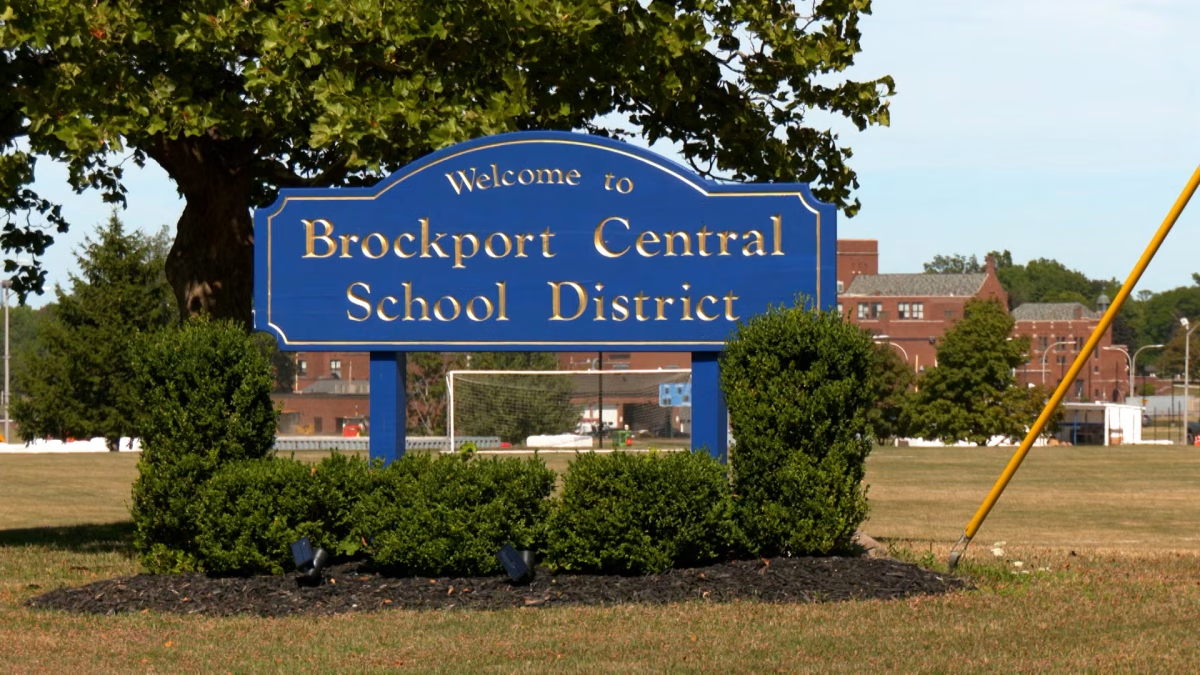
By Ellen Paddock
The Department of Environmental Science and Ecology hosted a virtual Earth Day seminar on Wednesday, April 21, featuring Professor Emeritus James Haynes, who taught at SUNY Brockport for 41 years.
Over 30 students participated in a discussion that answered some big questions about climate change. Although these students woke up to a snow-covered campus on Wednesday, Haynes told them not to be fooled. Earth’s average temperature is rising.
“The difference between 78 and 80 degrees on a late spring or early summer day isn’t noticed much, but a small change in temperature in the past has made big changes in how humans experience their lives,” Haynes said.
This temperature rise is directly correlated to increasing carbon dioxide concentration in the atmosphere. According to Haynes, humans are living in uncharted territory as carbon dioxide concentration is higher than ever before.
“Carbon dioxide concentration in the atmosphere has been growing exponentially since 1950,” Haynes said. “If you’re a student, your children will be experiencing a world where the amount of carbon dioxide is 2.5 times higher than it is now.”

Temperature and carbon dioxide correlation (Photo Credit: Jobonehumanity.org)
Mackenzie Fraser, a junior at the University at Buffalo, is pursuing a major in Environmental Science because she is passionate about preserving the earth for future generations.
“What we as a population can do now is make a difference by spreading awareness that this is an actual issue that can affect generations to come more severely, and educate those around us to be part of the change for our future, and for our children’s futures,” Fraser said.
Addressing the argument that rising carbon dioxide levels are a natural occurrence, Haynes said humans generate 42% more carbon dioxide than in pre-industrial times. Additionally, scientists can distinguish between natural and human-generated carbon dioxide.
“We know it’s us because fossil fuels have a unique chemical carbon fingerprint,” Haynes said. “That is the smoking gun evidence that it is us, that we’re the ones adding carbon as we burn fossil fuels.”
According to Haynes, we ask nature to provide the products and services we rely on while we trigger temperature changes in the next 80 years of potentially five times more than ever experienced.
“It seems to me we can’t let this happen and it seems to a lot of other people the same way. That’s why 196 countries signed the Paris Climate Accord in 2015,” Haynes said.
According to climate scientists, the average global temperature must not rise more than 3.7 degrees, or ideally, 2.7 degrees. If the global temperature is limited to these levels, we can adapt and be resilient enough to handle what’s coming.
If temperatures are not kept under the necessary limits, there will be negative effects on all aspects of human life. Fraser said these negative effects are already apparent.
“Both frequency and the intensity of climate change is increasing with evidence of extreme weather conditions such as droughts, floods, heatwaves, rising sea waters, and natural disasters such as tsunamis, earthquakes and hurricanes,” Fraser said.
Haynes views these negative effects through three lenses: Jobs and economy, personal health and geopolitical concerns. There will be a decrease in productivity and crop yields, crime and lung disease will increase, and more refugees will come to the southern border to flee rising temperatures.
“We face severe problems if we continue on our regular path,” Haynes said. “It turns out there is great hope if we act in the next 20 years because the economic equation has changed.”
The cost of inaction exceeds the cost of action against climate change. At this time, clean energy is the most inexpensive source of electricity.
“One prediction is renewables, including nuclear power and hydroelectric power, will replace fossil fuels as the number one energy source worldwide by 2030,” Haynes said.
The reality of the planet relies on how nations will choose to invest their financial resources. Haynes put it this way –– “Are we going to invest in the dirty fuels of the past or clean fuels of the future?”
Andrew Berreyesa, a junior at Cornell University majoring in Environment and Sustainability believes this is the first generation with the tools and knowledge to mitigate climate change.
“It has become increasingly apparent that some of our activities on the planet are detrimental to our own survival,” Berreyesa said. “Our generation has the power to change it because we have access to technology at a very wide scale, and we are at a potentially critical time period where we can mitigate some of these problems.”
Fortunately, it is not too late to act and students are passionate about making a change.
SUNY Brockport student, Brooke Wilkins, Environmental Science ‘22, plans to devote the rest of her life to educating others about climate change.
“I just really want to be able to make a difference and take care of the planet that provides for us,” she said. “I want to commit the rest of my life to do what I can to help educate people on climate change.”
Haynes believes if people, especially the younger generation, can come together and not let partisan politics paralyze them into inaction, they can successfully slow climate change.






















